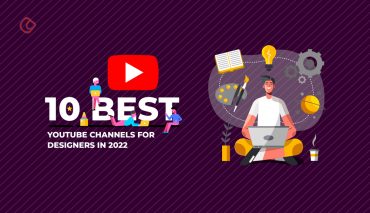
There has been quite a lot happening to the SEO world. If you were to run around the online communities, you would come across various myths, rumours & questions that linger on SEO – whether it is still on, or dead.
What has changed rapidly in the recent past is Google’s search technology, and the resulting approach to successful online marketing. The fact (still) is, SEO is a must to the online marketing strategy of any business.
Let’s demystify it all and take a look at the major changes that have evolved the SEO world.
No more keyword data
The worst of anything the SEOs could think of – Google decided to get the keyword data off the website analytics for its organic searches. This resulted in a great loss of a valuable tool that helped webmasters understand the various search queries and intents that brought users to the website, the resulting conversion etc. But again, this is only limited to the organic traffic segment via Google.
This took effect with Google’s step forward to switch all searches over to encrypted searches using HTTPS. This was initially launched in May 2010 when the encrypted search was on a separate URL. As time moved on, a user typing in http://google.com was automatically redirected to https://google.com, and there came in the infamous ‘not provided’ data in keyword analytic reports that continued to accrue larger figures over time.
Google Plus
Google Plus has a large impact on displaying personalized search results, and this happens on the incognito mode just as well. Search results show up posts from people on Google+, and that just says how this social network has evolved into establishing identities and semantic relevance tactfully. It makes it imperative for businesses to establish personal identities with their brands, and ensure constant and consistent presence on the social platform.
In-Depth Articles
Ever noticed a block of results tagged under the title ‘In-depth articles’ on Google searches? That’s yet another feature Google has recently introduced, following its research that revealed an astounding 10% of user’s needs to involve learning about a broad topic. This presents new challenges to the SEOs in working around long term strategies like building your website authority (Publisher Rank) to be found on Google’ search results.
Authorship
Authorship and Publisher Rank work pretty much hand in hand, and are the new players in the dynamic SEO scenario. We have already discussed in our post about Google+ and Authorship and how we could help Google fetch Authorship details on a published article.
If you didn’t already know, Google had declared that it could use your name and face wherever it wants. What this also means is that it could potentially use the social drive and vote behind the author as factors in search listings. The bottom line here is – both your personal authority (Authorship) and website authority (Publisher Rank) matter.
Hummingbird
Hummingbird is a technology update of Google search that has affected about 90% of searches worldwide. It was designed to handle more complex queries, getting Google better at understanding concepts and the relationship between them. To put it in a simple way, Google now parses search queries as full questions as opposed to word by word, and therefore is better at returning ‘answers’ as opposed to keywords relevant bunch of search results.
It’s no more necessarily the website URL click-throughs on the search results that count; with the ever evolving SEO grounds, what also matters is ‘how’ you’re found.
SEO is more of an ongoing long term strategic commitment consisting of building genuine identities, industry authority, social relationship etc. They are no more of the traditional ‘build links & watch’ gamer. That said, link building isn’t obsolete either, but there are more additions to the approach of a successful SEO.
Every business must mandatorily keep up with the evolving trends if it has to survive. In the end, that’s how SEO has just evolved.
Feel free to Contact us if you need support for your website’s SEO and for other SEO guidelines.
Looking for a good team
for your next project?
Contact us and we'll give you a preliminary free consultation
on the web & mobile strategy that'd suit your needs best.








People seem to be always mistaken about how much of an affect keywords or even SEO has on hits & later conversions. SEO simply helps your site gets noticed better. Your site needs to have the content in place for people to get what they want.
A whole industry has evolved around SEO but truth is all the spending on SEO hardly matters if your business numbers do not match the spending on SEO. Get your content in place, that should take care of 90% of your “SEO needs”. The rest 10% is what real SEO is all about, h1,h2 tags, meta, google plus, etc etc.